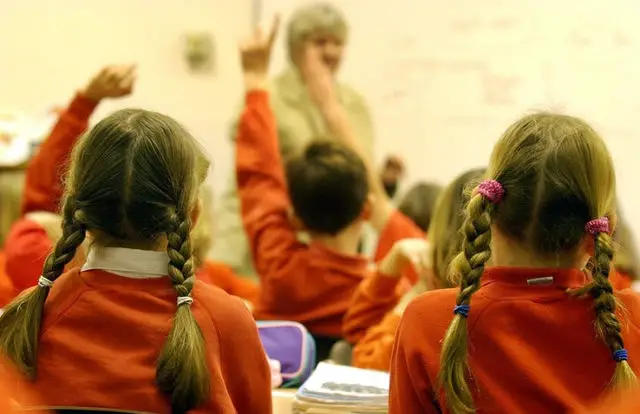Children from disadvantaged backgrounds in the Isle of Wight lag far behind their classmates, according to teacher assessments of their first years at school.
Results of the Key Stage 1 assessments, made when children are seven, show that the proportion reaching the required standard in reading, writing, maths and science falls well below other children.
The Department for Education identify children from disadvantaged backgrounds as those who would be eligible for free school meals.
Biggest gap in writing
These children are lagging behind in all the assessed topics. The biggest gap is in writing with 40% reaching the required standard compared to 64% of other children.
In reading it’s 51% compared to 73%. Fewer children receiving free school meals met the standard in maths and science too.
NEU: Strategy for raising attainment has to address appalling figures
Isle of Wight Conservatives said pledged to ensure all schools were rated ‘Good’ by 2020, with at least 25% ‘Outstanding’.
Nansi Ellis, assistant general secretary of National Education Union, which represents teachers, said;
“There were 4.1 million children living in poverty in the UK in 2016-17, according to Child Poverty Action Group – 1 in 4 of the school population.
“Any serious strategy for raising educational attainment has to address these appalling figures.
“Teachers are working more than 50 hours a week, and this figure is rising, but there are limits to what can be achieved through placing the responsibility of lifting standards on schools. There are wider issues which need to be addressed, and the Government is not addressing them.”
Assessments were made of 1,341 pupils in state-funded schools across the Isle of Wight.
The proportion reaching the standard in reading was below the average for England, and behind the regional average.
Comparing girls and boys
Girls performed more strongly than boys and the gap was widest in writing where girls were 18 percentage points ahead.
In reading, 76% of girls achieved the target standard, compared to 64% of boys, and 25% of girls were judged to be working at above the required level.
The Key Stage 1 assessments were introduced in 2016 to determine how children were coping with the more challenging national curriculum set by the Government and the increase in the standards expected.
NEU: Unnecessary pressure
The NEU says that looking at how children are learning is important but KS1 assessments are a poor way to do it.
Ms Ellis said:
“We don’t need to test every child in high-stakes ways that put a lot of pressure on them, in order to evaluate whether a school is doing its job.
“Other countries have found different and more successful ways of monitoring the quality of education and improving it.”
Minister: Determined every child meets his or her potential
School Standards Minister Nick Gibb said:
“Reading and writing are the foundation of education and once grasped can open up a world of literature and knowledge to young people
“We remain determined to make sure that not just most children, but every single child is able to meet his or her potential.”
Article shared by Data Reporter as part of OnTheWight’s collaboration with Press Association and Urbs Media





